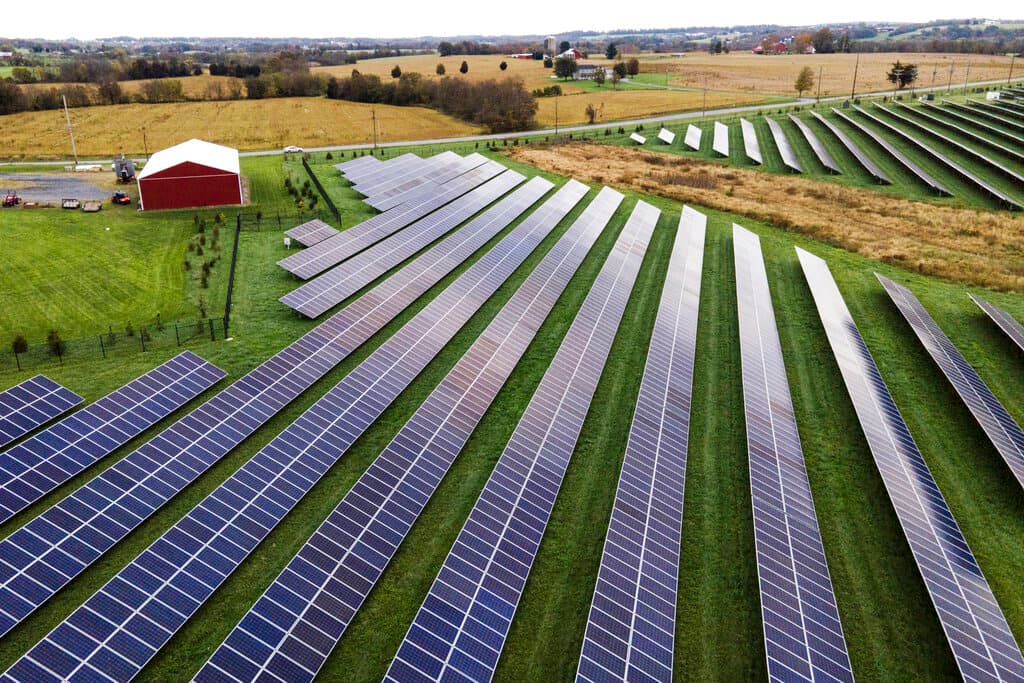EU Threatens Green Arms Race Over Biden’s So-Called Inflation Reduction Act
French, German Leaders Plan To Meet Over Formal Protest

The leaders of Germany and France are retaliating against President Biden’s Inflation Reduction Act and plan to meet next month to consider lodging a formal protest with the World Trade Organization, pushing America and the European Union closer to a trade war that would benefit Communist China.
The president of France, Emmanuel Macron, and the German chancellor, Olaf Scholz, sat down at Paris last week to strategize on how the EU could counter the IRA, taking aim at the half-a-trillion dollars in spending, grants, loans, and tax breaks for American companies as well as those in Canada and Mexico.
Politico described the law’s passage as having “thrown the transatlantic economic relationship into turmoil.” Mr. Scholz “expressed frustration that the American law would directly harm Germany’s vital car market,” the outlet wrote, because “the incentives would prove damaging to Germany and Europe and eventually spark a trade war.”
Germany and France, Bloomberg reported in the wake of the summit, “warned that European businesses will need to unleash investments on a nearly unparalleled scale to keep from falling behind U.S. and Chinese firms as countries revamp their economies to make them more climate friendly.”
According to the Financial Times today, an EU draft plan will “hit back” at the IRA “by easing restrictions to allow a wave of tax credits for green investment” and removing obstacles for state money — some of it from the bloc’s Covid-19 funds — to flow to green segments of the economy.
The Democratic senator from West Virginia, Joseph Manchin III, who provided the deciding vote in passing the IRA, recalled in an interview with Politico that Mr. Macron told him, “You’re hurting my country,” in particular with made-in-America requirements.
The EU’s goal is to ensure they’re “not treated worse than immediate neighbors,” Mr. Scholz said at a news conference with Mr. Macron, who promised that the two European nations planned “a real convergence on the responses we’re bringing.”
On December 4, the chairman of the European Parliament’s Committee on International Trade, Bernd Lange, urged the European Parliament to go forward with legal action against the IRA. “The EU,” he said, “must swiftly file a complaint against the U.S. with the WTO in the coming months.”
There is hope for cooler heads to prevail. In October, the European Commission established a task force with America’s deputy national security adviser, Michael Pyle, aimed at finding solutions and at gaining for European companies a share of the IRA pie.
“The task force will address specific concerns,” they wrote in a statement, “Both sides agreed on the importance of close coordination to support sustainable and resilient supply chains across the Atlantic, including to build the clean energy economy.”
In remarks last week, the European commissioner for trade, Valdis Dombrovskis, told the European Parliament that features of the IRA “are becoming major irritants,” but warned that Europe “should also be mindful of the risk” of responding “IRA-like policies” like those the Financial Times outlined in the EU’s leaked battle plan.
Mr. Dombrovskis said that the EU was “likely to lose out” in “a more protectionist world,” and that while “subsidies can incentivize the development of green and climate-friendly technologies … subsidies must not come at the cost of well-functioning markets and fair competition.”
America’s trade representative, Katherine Tai, met with Mr. Dombrovskis in Brussels earlier this month to discuss what he and other EU officials have called “problematic aspects” of the IRA but suggested they be “realistic” about the prospect of changes.
“I don’t think that much will change in substance,” Mr. Lange said according to Funke Mediengruppe, “because the law has already been passed,” but Reuters reported that he sees “complaining to the WTO would make send a message that the bill was incompatible with the organization’s rules.”
At a time when North America and Europe are dealing with the pandemic’s aftermath, record-high inflation, and Russia’s invasion of Ukraine, the last thing countries need is a trade war that hurts businesses in Denver and Dusseldorf far more than dandies at Davos. Leaders may want an energy revolution, but the pain of a green arms race is something their citizens can do without.

